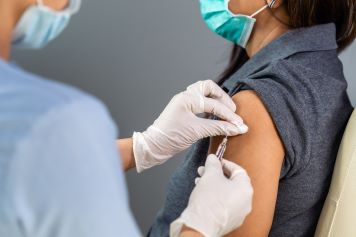WHAT DOES SUPREME COURT VACCINATION RULING MEAN FOR EMPLOYERS GOING FORWARD?
January 15, 2022
On January 13, 2022 the United States Supreme Court ruled on two watershed cases related to the mandatory vaccination of workers in America against the COVID-19 virus. Already the questions have been coming in from employers wondering, ‘what impact does this have on my business operations?’
First, let’s look quickly at the decisions. Boiled down, this is what the High Court rulings determined:
- In the matter of the Occupational Safety and Health Association (OSHA) having the authority to require businesses with 100 or more employees to verify full vaccination or weekly testing, the Court ruled such action could not take effect.
- In the matter of the guidelines set forth by the Department of Health and Human Services (HHS) and the Centers for Medicare and Medicaid Services (CMS) requiring staff working at health care facilities that participate in the Medicare and Medicaid programs to be vaccinated, the Court lifted lower court injunctions that had blocked enforcement of the regulation requiring healthcare worker vaccinations (the so-called “CMS Rule”).
So, to the question on many employers’ minds, where do we go from here?
First, to the OSHA decision, it is important to remember that the court didn’t rule that the mandate was unconstitutional, only that such a mandate was outside of the scope of OSHA’s powers. This means that prior court rulings affirming an employer’s right to mandate vaccination as a term of employment still stand. Employers may require employees whom work on site be vaccinated. You can read more about those court decisions in an earlier blog I authored.
Strategies for striking a balance between legitimate health and safety concerns and honoring well-intentioned objections from good employees can be reviewed here.
Additionally, the ruling doesn’t mean this matter is done. It is possible that the Biden administration can reshape this mandate under the authority of a group other than OSHA, ostensibly in a way that satisfies the court’s concerns outlined in the current decision.
Finally, when it comes to the OSHA ruling, it has been argued by some that this decision actually puts more pressure on employers to act. Up until now, many employers have taken a wait and see approach to the issue of a vaccination policy. Had the Court ruled in favor of the mandate, it would have offered employers cover from employees who opposed the mandate. Now, with no such cover, employers must decide going forward how they will choose to approach the delicate balance between employee safety and employee freedoms.
As for the affirmation of the HHS mandate and the CMS Rule, employers must require that 100% of covered staff receive their first dose of the COVID-19 vaccine, except those with a pending exemption request and those whose vaccination was temporarily delayed per CDC recommendations. The CMS has announced it will exercise some discretion in enforcing this deadline. Namely, if a facility can show it has more than 80% staff vaccination by January 27 and a plan to achieve 100% vaccination within 60 days, it will be exempted from enforcement actions.
As with all employers I represent, my advice remains steadfast –help your employees understand the data and science behind the vaccines, offer them a safe space to air their concerns, and use the carrot over the stick to increase compliance and retain employees.
In the case of the healthcare industry, that is a win for the employer, the employees and, most importantly, the patients who rely on these talented men and women to care for them.
You can read the SCOTUS’ written decisions on both matters here.
B. Kevin Burke Jr. is an attorney with Gross Shuman, P.C. He focuses his practice on the litigation of contract disputes, labor and employment issues, intellectual property protection, and trade secret cases. He can be reached at 716.854.4300 ext. 292 or [email protected].


